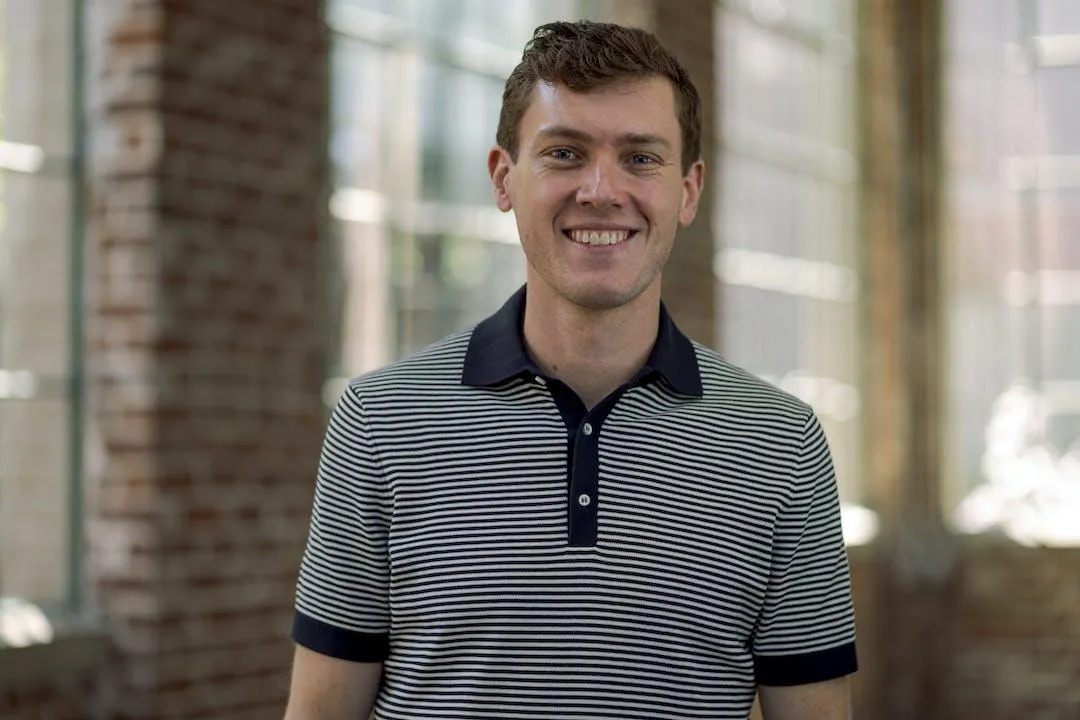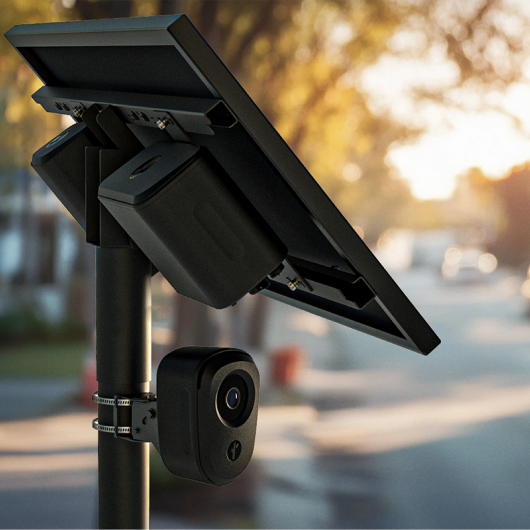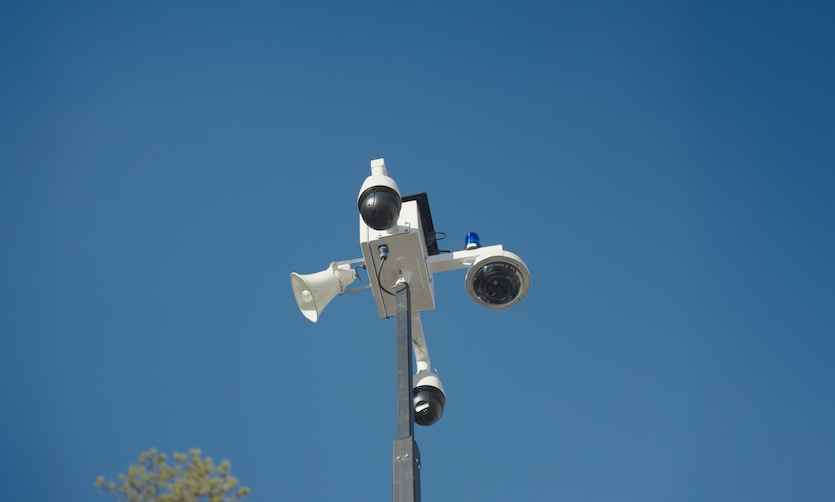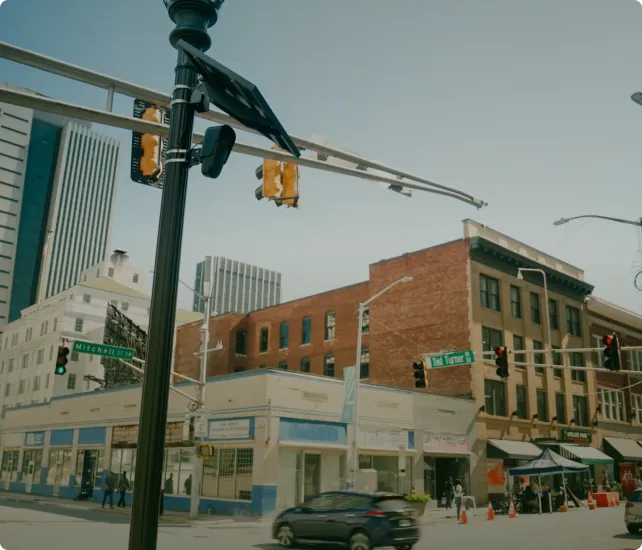


Garrett Langley, Flock Safety's CEO, on how the company's principled framework protects privacy and promotes objectivity
Flock Safety is committed to eliminating crime while protecting privacy and ensuring transparency. See how our technology supports safer communities.
Our mission is to eliminate crime. Full stop. We do so within a principled framework that protects privacy and promotes objectivity. At Flock Safety, we believe it is imperative that we work together with our communities, openly and transparently, with the best people, technological products, and thoughtful policies. We also believe that ethical public safety should be an apolitical position and we genuinely strive to bring communities together to pursue exactly this. And at the end of the day, if people do not understand how we’re designing our systems to eliminate crime within a principled framework, that is on me to better explain it.
I’ll break this down into three parts: privacy, impact on historically disadvantaged communities, and giving a voice to the residents of the community.
Regarding privacy, we believe it’s incredibly important to start with the right questions. What type of data is collected? Who has access to that data? What can they do with the data? How long is the data retained? Since our founding in 2017, Flock has consistently answered these questions:
- Type of data - we collect the objective, indiscriminate evidence needed to solve crime. We started by focusing on vehicles and license plates since according to the International Association of Chiefs of Police, 70% of crime involves a vehicle. And recently we launched a new, separate product, to capture more types of evidence, like the audio signature of a gunshot. But just as important as what we do collect, is what we do not collect. We do not focus on personally identifiable information, including facial recognition, biometric data, or even the registration of the vehicle owners. While you can filter on vehicle details like the presence of a roof rack or a bumper sticker, you cannot filter on the type of bumper sticker, like a political party or a house of worship. An eyewitness of a crime often does not have the wherewithal to recall a license plate number, but they may see a yellow truck with stickers on the back. Our goal is to provide evidence to assist in solving crime, and not collect any data that does not aid in solving crime, or that has been shown to violate someone’s privacy. More on that and case law below.
- Access to data - our customers 100% own their data. Flock never shares, sells, or monetizes the data. Unlike location services on your phone or financial services with your credit card, where you may not know what data is being sold and to whom, with Flock you know exactly who has access to the license plate data. Every search for evidence is logged, requires a search reason, and is auditable. You know the data is never being sold to anyone. And you know it will only be used as evidence in the event of a crime, otherwise it is permanently deleted. Moreover, all the data is encrypted at rest and in-transit, stored across logically-separated cloud services, and protected by extremely granular permissioning, ensuring that data is only accessed by authorized parties and all such access is audited. Our customers can choose with which other law enforcement agencies they share their data, but by default, only the customer has access to the data..
- What is the data used for - Solving and preventing crime. 80%+ of all property crime goes unsolved. 50% of violent crime goes unsolved. These facts are reported by the FBI. In line with these statistics, this means that if you are the victim of one of the 7,000,000 property crimes that occur every year, the crime probably will go unsolved and you’ll lose your property. If you or a loved one is one of the 1,000,000+ victims of violent crime that occur every year, there’s a 50/50 chance it will be solved. It is unacceptable and, in my opinion, a gross violation of your privacy to essentially allow someone to get away with these crimes if the technology exists to help stop them. If we can help, in a safe and effective way, we have an obligation to do so. A record is kept of each search, and is publicly available for audit, to ensure that governing bodies can provide the oversight necessary to ensure this data is used solely for law enforcement purposes only. It is not Flock’s job to enact laws. We trust that our governing bodies will do so at the will of the people, and if we can help keep people safe by enforcing those laws, we will.
- Data retention - All data is stored in the cloud and by default, deleted automatically every 30 days, on a rolling basis. We were the first provider of ALPR technology to institute a 30-day data retention period by default, as a short retention period limits the exposure of sensitive data, and we would welcome a third-party, academic study on the efficacy of the length of that data retention.
Beyond the ways we have approached these questions, we have also reviewed federal case law and observed time and again that capturing license plate data for a limited time is clearly not a violation of privacy. Commonwealth vs. McCarthy established that while people have a constitutionally protected expectation of privacy in the whole of their public movements, that interest was not invaded by the limited extent and use of ALPR data. United States vs. Yang held that people did not have a reasonable expectation of privacy in the historical location data of a vehicle. Moreover, the Yang decision referenced United States vs. Carpenter, and while the Carpenter decision pertained to cell phone data tracking, the Yang decision explained that the Carpenter decision does not apply to license plates and license plate data.
Legal scholars can argue all sides of these issues. But at Flock, our perspective is that because license plates are public information owned by the state. We store all data for a limited time period, and we transparently communicate to the communities we serve, we can both legally and ethically help provide critical evidence when necessary to assist in solving crime.
We understand the disparate impacts of the criminal justice system on historically marginalized communities. There has also been much scholarship that shows that crime disproportionately impacts historically marginalized communities, particularly communities of color, and when we use objective evidence to solve crime and quickly clear cases, we actually benefit those same communities at a greater rate.
Patrick Sharkey, author of Uneasy Peace, noted in an interview “the overall demographics of victims is incredibly consistent over time. It’s young people of color, particularly young men of color. I don’t see anything yet to indicate that’s changed dramatically.”
Matt Yglesias points out the following:
Aaron Chalfin and Justin McCrary find $1.67 cents in crime reduction benefits for every $1 invested in policing — in this case largely driven by a reduction in murders.
More recently, Chalfin (this time with Benjamin Hansen, Emily Weisburst, and Morgan Williams Jr.) finds that “each additional police officer abates approximately 0.1 homicides” and improves on prior scholarship by documenting the race-specific effect, which is “twice as large for Black versus white victims.”
This body of research clearly shows that when you appropriately invest in law enforcement 1) you can actually solve and prevent crime and 2) the communities that see the greatest benefit are historically marginalized communities, particularly communities of color. Yes, we need to be ever cautious of over-policing and strive for the equitable distribution of law enforcement resources. Cities that use an objective solution that relies on vehicle and license plate data, gain surgical precision in fighting crime for the biggest benefit with the lowest risk.
When I hear about the reported 22% reduction in crime in the Las Vegas Trail community in Fort Worth, TX (a primarily Black community) or the “year of peace” in the Haynes Park community in Nashville, TN (a primarily Black community), I remember that it is not my job to speak for communities of color. It’s my job to listen to those communities and help provide the technology they are asking for.
The final point I want to address is that of giving a voice to the community and to the people who were elected to represent the community. We value transparency at Flock, and to that point, our team has spoken in public at hundreds of city council meetings, advocating for transparent policies regarding public safety technology. In fact, I would go as far as to say that our team has spoken in public, in front of elected officials, about ALPR technology, more than any other person or group in history. We welcome oversight from democratically-elected governing bodies and have seen hundreds of cities adopt robust ALPR policies, which in some cases have been shaped by local community groups and police departments working together. We were also the first ALPR provider to introduce a Transparency Portal to show anyone in a city exactly how this technology works. We’ve answered the public’s questions in thousands of press interviews and will continue to always publicly communicate exactly how our technology works.
At Flock, we genuinely believe that it’s possible to support proven law enforcement efforts at crime reduction (it’s our mission) and do so within a principled framework. Since 2017, Flock cameras have played a critical role in reducing crime and solving cases across the country. I recall the first of more than two dozen kidnappings we were able to help solve, where a one year old boy was randomly kidnapped off the street while his mom was pushing him in a stroller. Flock provided the vehicular evidence that allowed law enforcement to find the suspects and return the child to his mom, unharmed, in under six hours. There is the time a man ambushed a police officer, shot him with a shotgun and drove across state lines to evade arrest. Law enforcement two states away were able to find the suspect thanks to Flock evidence and bring him to justice. There is also the story from Benicia, California where law enforcement stopped a stolen vehicle from driving through town, only to find the suspect had 11 illegal firearms in the car and was planning something much worse.
From kidnappings to homicides to recovering illegal firearms, police report that Flock is helping communities solve more than 500 crimes every day, representing an estimated 2.5% of reported crime in America. Through transparent policies, public engagement, limiting the type of data we collect and the data retention practices for that evidence, coupled with an ethics-first mindset, we can actually reduce crime with better technology.
I would like to end with the conversation our customer Gina in Nashville, Tennessee had with a reporter, which I referenced earlier. During the conversation, she explained that her neighborhood was riddled with violent crime. Shootings, theft, and illegal drugs were running rampant in her community. The neighbors banded together, held fundraisers, and acquired Flock license plate readers. A year after acquiring our license plate readers, the reporter asked Gina what she and her neighbors found from installing the license plate readers. Gina responded, “Last year was a year of peace.”
At Flock, we recognize that nothing is perfect. While our technology is working as designed, there is always room improvement. We continue to invite full transparency into our technology, and we would love to work with more organizations to deliver on our mission to eliminate crime. I think we can all agree that a world with less crime is a world worth fighting for.
Garrett Langley
Founder and CEO of Flock Safety





Protect What Matters Most.
Discover how communities across the country are using Flock to reduce crime and build safer neighborhoods.

.webp)









